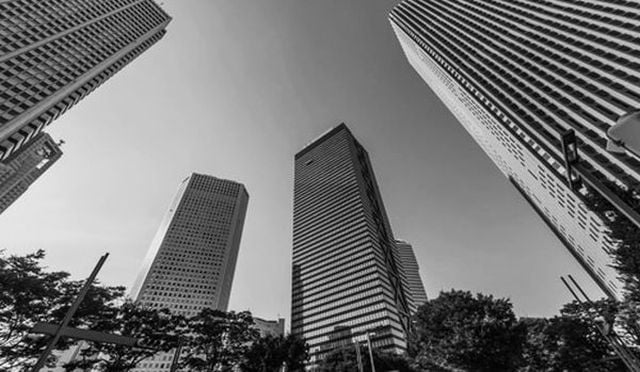It started with another peaceful demonstration over the weekend. It was a big one, but we’ve seen large demonstrations in Hong Kong before.
The Armchair Trader was in Hong Kong for the large student protests which brought the Central business district to a halt in 2014. Hong Kong has seen frequent demonstrations since it was handed back to China in 1997, but this time may be different.
The Hang Seng index goes back into reverse
Both the Hang Seng Index and the Shanghai stock market index (SSE Composite) are down today, as the market digests where to go with East Asia. The trade negotiations between China and the US are still unresolved with much being pinned on a potential meeting between Donald Trump and Xi Jinping at the G20 summit in Osaka later this month.
But that’s before we examine the fall-out from the US ban on Huawei and the implications of that for future Chinese trade with the world’s largest economy.
“A critical debate was scheduled to take place in the legislative council today regarding a draft bill proposing that China be allowed to extradite HK citizens at will but proceedings have now been delayed,” says Mati Greenspan, an analyst with eToro. “The fear here is that if this bill goes through, China will be able to exercise a tight level of control over HK citizens, a move that could potentially cause the international community to revoke its independent status. The Hong Kong stock market is down considerably today, which seems to be putting a damper on global investor sentiment, taking the wind from the sails of this week’s rally.”
Hong Kong has historically always been a haven for those who criticise the powers that be in China. It has sheltered thousands of revolutionaries, writers, thinkers and politicians over the last century, among them the likes of Sun Yatsen, founder of the first Chinese republic.
China’s current government is well aware this.
While Hong Kong was ceded to China on the basis of a one country, two systems agreement, China has been working to gradually erode this since 1997, sometimes with extrajudicial kidnappings of those it would prefer to prosecute inside China’s judicial system rather than Hong Kong’s courts.
At some point China was going to push Hong Kong’s population too far.
Its current extradition proposals before Hong Kong’s Legislative Council seem to have been a step too far for Hong Kongers, who following last weekend’s large protests are clashing with police on the streets of its financial district.
Tear gas and riot police are bad publicity for both Chinese and Hong Kong stocks, and seem to reinforce the concerns voiced off the record to The Armchair Trade by some Asia asset managers and risk analysts that things may be about to change for the worse in Hong Kong.
Trade negotiations
Hang Seng stocks have been taking a lot of punishment on the sidelines of the trade negotiations. Many Hong Kong companies are heavily exposed to China.
While there is evidence that China’s economy was already cooling going into the tariff war with Washington DC, the latest issues in Hong Kong are the icing on the cake for many investors and fund managers, who will be trimming their Hong Kong and China exposure this week.
“The protests seem to be getting bigger and more of a concern,” notes Neil Wilson, Chief Market Analyst with Markets.com. “The Hang Seng traded circa 2% weaker at send time, far outpacing the losses elsewhere across Asia, where it’s been a weaker session off the back of the Wall St pause. Watch Hong Kong, this could cause have wider implications.”
The hope is obviously that China will take a step back from its efforts to facilitate extraditions from Hong Kong. But if it pushes forward in a misguided effort to save face domestically, investors in Hang Seng stocks can expect to be burned.






















